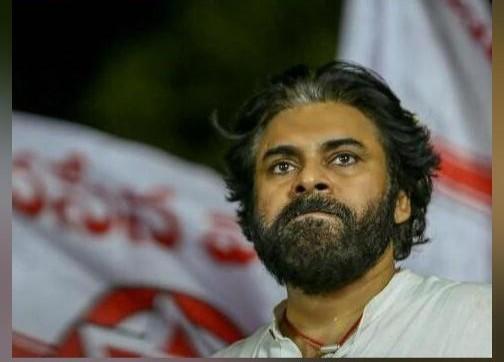
Title: Like PM, Kalyan switches to English while speaking on J&K attack
The recent terror attack in Pahalgam, Jammu and Kashmir, has left the nation in shock and grief. In the wake of this tragic event, several prominent leaders have spoken out to condemn the attack and offer their condolences to the families of the victims. Two notable leaders who have recently spoken on the issue are Prime Minister Narendra Modi and Andhra Pradesh Deputy Chief Minister Pawan Kalyan. Interestingly, both leaders switched to English during their speeches, sending out a strong message about India’s fight against terrorism.
Prime Minister Narendra Modi was one of the first leaders to respond to the Pahalgam attack. He addressed the nation in a televised speech, condemning the attack and assuring the nation that the government would take all necessary measures to prevent such incidents in the future. During his speech, Modi switched from Hindi to English, using phrases like “the world is witnessing” and “the entire humanity is collective” to convey his message. This sudden switch to English was significant, as it signified India’s commitment to fighting terrorism on a global scale.
Similarly, Andhra Pradesh Deputy Chief Minister Pawan Kalyan also spoke on the issue, switching to English during his speech. Kalyan, who is known for his strong views on various national issues, condemned the attack and paid tribute to the victims. He said, “The attack has been one of the darkest days in entire country. We condemn this attack in strongest possible terms.” Kalyan’s switch to English was also notable, as it showed his willingness to communicate with a global audience and send a strong message about India’s resolve to combat terrorism.
The decision of both Modi and Kalyan to switch to English during their speeches was not a coincidence. In the wake of the Pahalgam attack, India is facing a global backlash, with many nations condemning the attack and calling for greater cooperation to combat terrorism. By switching to English, both leaders were able to convey their message to a global audience, highlighting India’s commitment to fighting terrorism and its desire to work with other nations to prevent such attacks in the future.
The use of English during their speeches was also a strategic move to reach out to a wider audience. India is a multilingual country, with many languages spoken across different regions. While Hindi is the official language of the country, English is widely spoken and understood across the country. By switching to English, both Modi and Kalyan were able to communicate with a broader audience, including those who may not have understood Hindi.
Furthermore, the use of English during their speeches also signified a shift in India’s approach to communication. In the past, India’s leaders have often communicated in Hindi, with some leaders even refusing to speak in English. However, in recent years, there has been a growing trend of Indian leaders using English to communicate with a global audience. This shift is significant, as it reflects India’s growing importance on the global stage and its desire to engage with other nations on a global level.
In conclusion, the decision of Prime Minister Narendra Modi and Andhra Pradesh Deputy Chief Minister Pawan Kalyan to switch to English during their speeches on the Pahalgam attack was a significant move. It signified India’s commitment to fighting terrorism on a global scale, its desire to communicate with a global audience, and its willingness to work with other nations to prevent such attacks in the future. As India continues to grapple with the complexities of terrorism, the use of English during speeches is likely to become a more common trend, reflecting India’s growing importance on the global stage.
News source:
https://youtu.be/hl6_hZOnkFA






